How to Fix the Most Common Credit Report Errors

Buying Primary Tradelines: Fact, Fiction, or Fraud?
08/02/2023
Bad Credit Car Loans—What to Do & Why
08/10/2023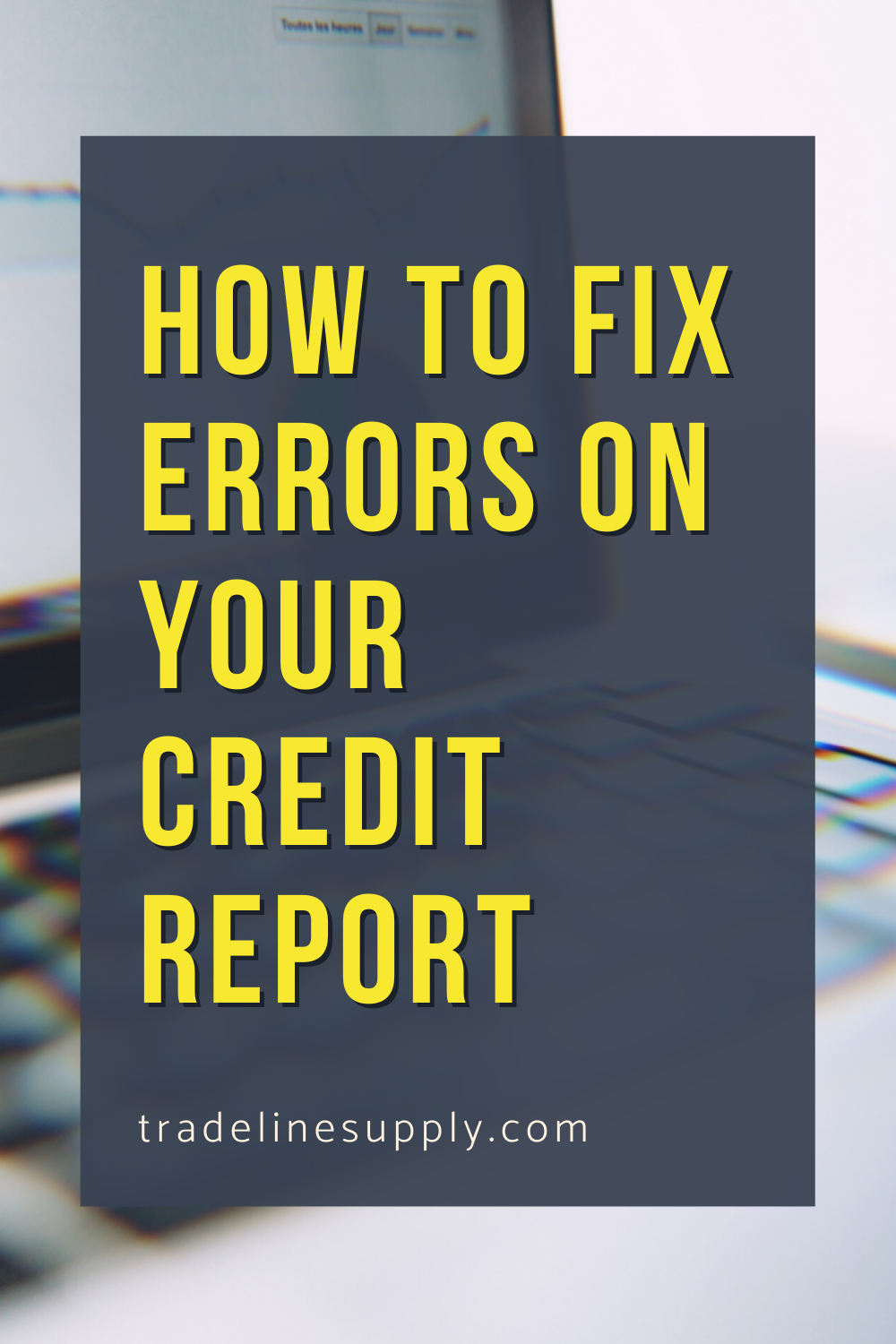
According to a Consumer Reports Study published in 2021, more than 30% of all consumers have errors in their credit report. Unfortunately, errors in credit reports are common.
Many consumers end up paying higher interest rates on loans as a result of those errors bringing down their credit scores.
From this information, you can see that one in three people are likely to have an error in their credit report. Let’s go over some of the most common types of credit report errors and how to fix errors on your credit report.
How to Get Your Credit Report
The first thing you will need to do in order to identify errors on your credit report is, of course, obtain a copy of your credit report.
You can get your credit report for free from annualcreditreport.com, which is the only website authorized by the government to provide your annual free credit report.
Under the Fair Credit Reporting Act (FCRA), you are legally entitled to receive one free credit report from each of the three major credit bureaus once every 12 months. You can choose to order all three credit reports at the same time or order each individual report at different times throughout the year.
Watch out for other websites claiming to offer free credit reports or free trials, especially if they ask you for payment information.
However, there are some reputable websites where you can view a simplified version of your credit report for free, such as CreditKarma, CreditSesame, WalletHub, and Bankrate. They are able to offer this service by advertising credit products to users.
You can also request a free credit report if you are denied credit because of information found in your credit report. The credit report must be from the credit bureau that provided the original report to the lender.
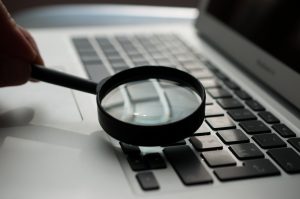
Inspect your credit report regularly to catch errors early.
In addition, you can qualify for an additional free report if you are unemployed and planning to apply for jobs, if you receive government assistance, or if you are a victim of identity theft.
Credit experts recommend checking your credit reports at least once a year, so make sure to take advantage of any opportunities to get a free copy of your credit report.
You can also pay to get your credit reports directly from the credit bureaus.
Types of Credit Report Errors
Identity Errors
- Your personal information is not accurate. For example, your name is misspelled or your address is incorrect. This is an indication that the credit bureau may be confusing you with another person. This can sometimes happen with family members who have similar names or live at the same address.
- Your file has been mixed with someone else’s. If you see accounts on your credit report that belong to someone else who has a similar name or the same address, this could mean that your credit report has been merged with another person’s report due to having similar personal information.
- There are accounts that you didn’t open. Accounts that you know you didn’t open but are listed in your name indicate that someone has stolen your identity and used it to fraudulently open accounts.
Account Information Errors
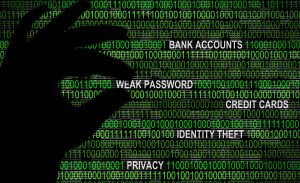
If there are accounts in your name that you didn’t open, your identity may have been stolen
- Accounts are reported more than once (duplicate accounts). Sometimes, the same account may be shown twice on your credit report. This can definitely hurt your credit if it’s a derogatory account that’s been duplicated.
- An account reports that you are the primary owner of the account when you are actually an authorized user (or vice versa). It’s possible that the credit bureaus have mixed up who is the primary owner of the account.
- Closed accounts are reported as open (or vice versa). Sometimes, accounts that you have closed in the past will still be reported as open. This can be problematic especially if it’s a negative account, such as a collection. On the other hand, if an open account is reported as closed, that’s also a problem because it can hurt your utilization ratio.
- There are late payments on your report, but you paid on time. Late payments are highly damaging to your credit score, so if you’ve never been late paying your bills but your credit report indicates otherwise, that’s an error you’ll want to correct as soon as possible.
- An account has an inaccurate open date or date of first delinquency (DOFD). If an account has an incorrect open date, this could change the age of the account, which could, in turn, impact your credit score. An incorrect DOFD on a derogatory account, such as a collection account, will affect when the negative mark falls off your credit report.
- Accounts show incorrect balance or credit limit information. Some credit cards do not report a credit limit at all, which could hurt your credit utilization ratio. Alternatively, your credit report may not be showing the correct balance or credit limit, which could also potentially hurt your utilization.
Clerical Errors
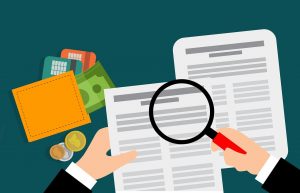
If you have “double jeopardy” with collection accounts on your credit report, you can dispute the duplicate collections.
- Inaccurate data was added back into your credit report after being corrected. If you’ve corrected an error on your credit report but then see the same error pop back up again, it could be a clerical error on the part of the credit bureaus or the data furnisher.
- Duplicate collection accounts with different debt collectors are all being reported as open accounts. As we explained in our article on collections, this situation is called “double jeopardy” on your credit report. If an account has been sold to a debt collector, there may legitimately be multiple accounts for the same collection on your credit report, but the original account should be updated to show that it has been transferred and should no longer show a balance owed. The collection agency that currently owns the debt should be the only entity reporting the collection as open with a balance owed.
- There is negative information on your credit report that is more than seven years old. Negative information must be removed from your credit report seven years after the date of first delinquency, so if any derogatory information on your credit report is older than seven years, you can have it deleted.
How to Fix Errors on Your Credit Report
If there are any errors on your credit report, you can contact the credit bureau that is reporting the inaccurate information to resolve the issue. Your credit report should contain information on how to file a dispute.
1. Gather All Necessary Information and Supporting Evidence

To get the best results, write one letter for each individual dispute and send them separately.
When you submit your dispute, it’s important to provide all the information the credit bureau will need to process your claim.
This may include the following:
- An annotated copy of your credit report (circle or highlight the incorrect item)
- Documentation to verify your identity (copies, not original documents)
- A letter containing additional information about the item, an explanation of why it is incorrect, and a request to update or remove the incorrect item
- Copies of supporting documents that provide proof of the item’s inaccuracy
The Federal Trade Commission offers a guide to disputing errors on credit reports and a sample FCRA dispute letter for consumers to use as a guide during the dispute process.
2. Submit Your Credit Dispute Letter Via Certified Mail
Although it is possible to dispute credit report errors online, many credit experts recommend instead writing a letter and sending it in the mail along with documentation to verify your identity and supporting evidence.

Send your credit dispute letters via certified mail with a return receipt requested.
If you try to dispute an error online or over the phone, you may not have the chance to provide enough supporting evidence, and the credit bureau may dismiss your dispute as frivolous.
It’s also recommended that you send your letters by certified mail with a return receipt requested so that you have proof that the letters have been received. In addition, it’s a good idea to keep copies of your correspondence in case you need to get outside help.
3. Send a Separate Dispute Letter for Each Error
If there is more than one error on your credit report to deal with, it is best to send a separate letter for each dispute, since the credit bureaus may reject long lists of disputes as frivolous.
4. Consider Working With a Reputable Credit Repair Company
If you have a lot of errors to dispute or if you have been the victim of identity fraud, you may consider hiring a credit repair service to assist with the process. [Disclosure: This article contains affiliate links.]

Annotate each error in your credit report and provide documentation supporting your dispute.
5. Contact the Furnisher of the Incorrect Data
You should also contact the lender that furnishes the data to the credit bureaus to ensure the inaccuracy gets corrected at the source. The FTC also provides a sample dispute letter to send to data furnishers.
If you neglect this step, the error could show up on your credit report again the next time the lender reports to the credit bureaus.
6. If Your Identity Was Compromised, Consider Placing a Credit Freeze or Fraud Alert on Your Profile
If the error on your credit report was the result of identity theft, it might also be a good idea to contact the credit bureaus to place a fraud alert or credit freeze on your account.
A fraud alert requires lenders to take extra steps to verify your identity if someone is trying to open an account in your name, whereas a credit freeze blocks anyone from viewing your credit file except for businesses that you have existing relationships with.
Keep in mind that if you are planning to buy tradelines, you must have all fraud alerts and credit freezes removed first, or the tradelines will not post.
Credit Countdown Video: What Is the Most Effective Way to Dispute Credit Errors?
In this Credit Countdown video from our YouTube channel, credit expert John Ulzheimer shares which is the best method for disputing your credit report.
What Happens Next?
Once the credit bureau has received your dispute, they have 30 days to investigate your claim. If their investigation cannot verify the information on your credit report, they must update it with accurate information or delete the item.
In addition, the credit reporting agency is required to provide you with written documentation of the results of the investigation.
You are also entitled to get a free copy of your credit report from the company if your credit report has been changed as a result of the dispute. This free copy is not counted as one of your annual free credit reports from annualcreditreport.com.
Upon your request, the credit bureau must notify any entity who pulled your report in the past six months about the corrections made to your report. If anyone has pulled your report for employment purposes in the past two years, you can ask to have an updated copy of your report forwarded to them as well.
What To Do If You Disagree With the Dispute Results

One option for addressing an unresolved dispute is to add a consumer statement to your credit file, although this may not be the best strategy depending on what you are trying to accomplish.
Option 1: Add a Consumer Statement to Your Credit File
If your dispute is rejected and you don’t agree with the credit bureau’s decision, you have the option of adding a consumer statement to your credit report to explain the situation. However, this is not necessarily the best solution.
Firstly, the statement doesn’t get factored into your credit score, so it won’t help your chances when a lender uses an automated system to approve or reject applicants. If it’s a case where an underwriter is looking at your credit report, adding a consumer statement may just draw their attention to a negative item unnecessarily, especially if the item is older.
Option 2: File Another Dispute With Additional Information
Another option is to submit a second dispute with additional supporting documentation to try to get the credit bureau to investigate the dispute a second time.
Option 3: Submit a Complaint to the CFPB
If the credit bureau still fails to correct the information in your credit report, you can submit a complaint to the CFPB.
The CFPB may not be able to force the credit bureaus, as private companies, to do anything, but getting a government agency involved might encourage the credit bureaus to rethink their position.
If you cannot get your credit report corrected, it may be time to consider taking legal action.
Option 4: Take Legal Action
Continuing to report inaccurate information after you have disputed it is a violation of the FCRA. If you feel that a credit bureau is violating your rights under the FCRA, you have the option of talking to a lawyer about potentially taking legal action.
How Does a Dispute Affect Your Credit Score?
Although a dispute on your credit report does not directly affect your credit score per se, if it results in a change being made to your credit report, then you could see an effect on your credit score.
During the Dispute Investigation
When a disputed account is being investigated, its status will show as “disputed” on your credit report, which affects how it is treated by credit scoring models.
According to credit.com, the VantageScore model temporarily excludes the entire account from consideration. If the account has derogatory marks associated with it, then your score could increase temporarily as a result of this account not being included.
On the other hand, this also means that you would temporarily lose all the positive information associated with that account, such as its age, which can have a negative effect on your score.
FICO scores only disregard the specific information that is being disputed, such as late payments, but not the entire account. Consequently, your credit score may go up due to negative information being excluded from the calculation while the positive information about the account continues to contribute to your score.

Hopefully, a successful credit dispute will lead to an increase in your credit score, although this is not guaranteed.
Some consumers try to use this system to their advantage by disputing negative accurate information on their reports to get a temporary boost and then applying for credit. However, not only is this approach dishonest, but it could ultimately work against you.
For example, mortgage lenders may not be willing to finalize a home loan while there are unresolved disputes on your report.
Will My Credit Score Go Up After a Dispute?
Once the dispute investigation is complete, your credit score may or may not go up after a credit dispute depending on what the results are and what changed in your credit report.
If the credit bureau verifies the information as accurate, then it will stay on your report and therefore your credit score should remain unchanged from what it was before the dispute.
In addition, if the dispute was about your personal information such as your name or address rather than being about one of your credit reports, then obviously this type of change will not affect your credit score.
However, if a negative item such as a late payment is removed from your credit report as a result of the dispute, it is possible that your credit score could see a boost, although this is not always the case.
For example, if you still have other negative information remaining on your credit report after the dispute, those negative items would continue to influence your credit score and could prevent you from seeing much of a score increase.
In fact, it’s even possible that a credit dispute can hurt your credit instead of helping, as we will elaborate on below.
Does a Dispute Hurt Your Credit?

Credit scoring “buckets” can complicate the effect that a dispute may have on your credit score.
You might be surprised to learn that a successful credit dispute can actually make your credit score go down instead of up, even if the result is getting a negative item removed from your credit report.
Why?
It has to do with one part of the complicated credit scoring system known as “buckets” or “scorecards.” John Ulzheimer, a well-known credit expert who has worked with FICO, Equifax, and Credit.com, has written an article in our Knowledge Center about credit scoring “buckets” to explain the concept.
In the article, Ulzheimer explains that credit score points are assigned based on certain “buckets” that consumers fall into, which can be described as answers to questions that the credit scoring model asks about your credit report.
For example, if the question is “How many major derogatory items are on your credit report?” there might be a bucket for consumers with no major derogatories, another bucket for consumers with one major derogatory item, and so on.
Each bucket has its own unique credit scoring algorithm, meaning your credit score is actually calculated differently based on which bucket you fall into.
Removing a negative item from your credit report, such as a collection account, could potentially move you from one bucket to another. In this new bucket, your score is calculated differently than it was before because now you are being compared to an entirely different group of consumers.
Unfortunately, the new credit scoring algorithm that is now being applied to your credit profile may calculate your score in such a way that it actually ends up being worse than it was before you removed the negative item. This explains why some consumers may experience a credit score decrease after successfully disputing a derogatory item on their credit report.
Conclusions on Credit Report Errors
Unfortunately, errors on credit reports are very common, so we all need to be vigilant about monitoring our credit for fraud and inaccuracies.
Make sure to check your credit reports regularly by claiming your annual free credit reports as well as using a reputable free or paid service throughout the year. As soon as you spot any errors, try to get to the bottom of them and get them corrected both with the credit bureaus and with the data furnishers as soon as possible.
By making sure that your credit report only contains accurate and timely information, you are helping to protect your financial health and ensuring that credit report errors don’t stand in the way of future opportunities.




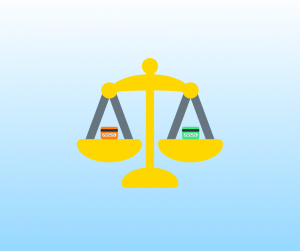


2 Comments
Credit report errors can stop you from getting the most out of your finances. This article has some great tips for solving these errors. Thanks for sharing!
Knowing how to fix credit report errors can be crucial to your financial well-being. This article breaks down how to fix the most common credit report errors. Thanks for sharing!